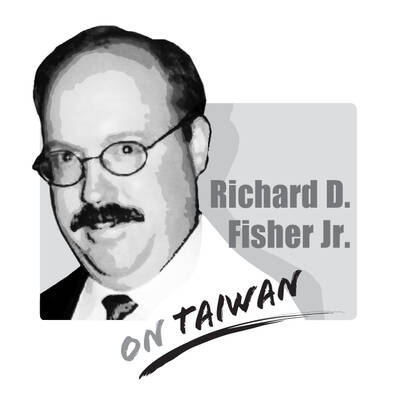Many South Koreans were unhappy about a plan to construct a Chinatown in Gangwon Province, and some launched a petition on the Blue House’s Web site, calling for the project’s cancelation. Due to the public outcry, Kolon Global Corp late last month announced that it was scrapping the project.
Meanwhile, several South Korean dramas have been criticized by audiences for Chinese-funded product placement or having too many Chinese elements in the shows. Some who found TV drama series Joseon Exorcist to be highly offensive petitioned for its cancelation. All of the sponsors eventually withdrew, and to avoid public anger, the series was canceled after the first two episodes aired in March.
The two petitions highlighted South Koreans’ concerns over China’s “Northeast Project,” or the Serial Research Project on the History and Current State of the Northeast Border.
The Northeast Project was a study conducted by the Chinese Academy of Social Sciences and the three provinces of Northeast China from 2002 to 2007.
It researched the role that the ancient Korean Peninsula — including Gojoseon, Goguryeo and Bohai, known as Balhae in Korean — played in Chinese history, and aimed to strengthen how China’s Korean ethnic group identified with its Chinese ethnic group.
The project’s consolidation of Chinese nationalism and academic research irritated South Koreans, and they fear a new rendition of the project. Disputes with China over the origins of kimchi and hanbok (traditional Korean dress) have reminded them of the Northeast Project’s invasiveness and distortions, but with a cultural twist.
South Koreans’ sensitivity toward Chinese cultural warfare and their reaction to it could serve as an example for Taiwanese.
Chinese films, dramas, music, games and social media are almost everywhere in Taiwan, and some Taiwanese students have gotten used to writing in simplified Chinese characters on China’s popular Xiaohongshu (“little red book,” 小紅書) fashion platform.
In March, the National Security Bureau revealed that the Chinese Communist Party (CCP) had been training nearly 1,000 Taiwanese Internet celebrities and YouTubers in preparation for a cognitive warfare against young Taiwanese.
Normal cultural exchanges are unlikely to be so dangerous, but China can turn everything into a tool for its “united front” work. Taiwanese would be naive to think that “culture is culture, politics is politics.”
In addition to suppressing Taiwanese art and entertainment, the true seriousness of cultural warfare lies in the effects it has on Taiwanese’s cultural identity.
Such warfare seeks to strengthen how Taiwanese identify with China and promote good feelings between the two, while numbing them to Beijing’s persistent ambition to annex Taiwan by force.
As Taiwanese and Chinese use the same language to communicate, and China is endowed with a stunning amount of capital, it is impossible for Taiwan to fend off Chinese culture in today’s Internet era.
While South Korea scrapped a TV drama series that cost 32 billion won (US$28.5 million) to protect its culture, Taiwanese cannot reach a consensus on Beijing’s cognitive warfare, let alone start a discussion on how to prevent it from invading Taiwanese culture.
Nevertheless, Taiwanese must be aware of the cultural aspect of “united front” tactics and consider the national security side of culture.
This is a critical first step for building an effective defense against Beijing’s cognitive warfare.
Wu Cheng-yin is a software engineer.
Translated by Eddy Chang
A series of strong earthquakes in Hualien County not only caused severe damage in Taiwan, but also revealed that China’s power has permeated everywhere. A Taiwanese woman posted on the Internet that she found clips of the earthquake — which were recorded by the security camera in her home — on the Chinese social media platform Xiaohongshu. It is spine-chilling that the problem might be because the security camera was manufactured in China. China has widely collected information, infringed upon public privacy and raised information security threats through various social media platforms, as well as telecommunication and security equipment. Several former TikTok employees revealed

For the incoming Administration of President-elect William Lai (賴清德), successfully deterring a Chinese Communist Party (CCP) attack or invasion of democratic Taiwan over his four-year term would be a clear victory. But it could also be a curse, because during those four years the CCP’s People’s Liberation Army (PLA) will grow far stronger. As such, increased vigilance in Washington and Taipei will be needed to ensure that already multiplying CCP threat trends don’t overwhelm Taiwan, the United States, and their democratic allies. One CCP attempt to overwhelm was announced on April 19, 2024, namely that the PLA had erred in combining major missions
At the same time as more than 30 military aircraft were detected near Taiwan — one of the highest daily incursions this year — with some flying as close as 37 nautical miles (69kms) from the northern city of Keelung, China announced a limited and selected relaxation of restrictions on Taiwanese agricultural exports and tourism, upon receiving a Chinese Nationalist Party (KMT) delegation led by KMT legislative caucus whip Fu Kun-chi (傅崑萁). This demonstrates the two-faced gimmick of China’s “united front” strategy. Despite the strongest earthquake to hit the nation in 25 years striking Hualien on April 3, which caused
The Constitutional Court on Tuesday last week held a debate over the constitutionality of the death penalty. The issue of the retention or abolition of the death penalty often involves the conceptual aspects of social values and even religious philosophies. As it is written in The Federalist Papers by Alexander Hamilton, James Madison and John Jay, the government’s policy is often a choice between the lesser of two evils or the greater of two goods, and it is impossible to be perfect. Today’s controversy over the retention or abolition of the death penalty can be viewed in the same way. UNACCEPTABLE Viewing the